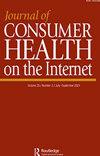Twitters’ Concerns and Opinions About the COVID-19 Booster Shots: Infoveillance Study
IF 0.7
Q4 PUBLIC, ENVIRONMENTAL & OCCUPATIONAL HEALTH
引用次数: 1
Abstract
Abstract Objective: This study aimed to categorize and analyze the public response toward third/booster shots of COVID-19 on Twitter. Methods: We downloaded the COVID-19 vaccine booster shots related Tweets using the Twitter API. The collected Tweets were pre-processed to prepare them for analysis by (1) removing non-English language tweets, retweets, emojis, emoticons, non-printable characters, the punctuation marks, and the prepositions, (2) anonymizing the identity of the users, and (3) normalizing various forms of the same words. We used the state-of-the-art BertTopic modeling library to identify the most popular topics. Results: Of 165,048 Tweets collected, 36,908 Tweets were analyzed in this study. From these tweets, we identified 9 topics, which were about Biden administration, Pfizer & BioNTech, Moderna, Johnson & Johnson, eligibility for booster shots, side effects, Donald Trump, variants of the Novel Coronavirus, and conspiracy theory & propaganda. The mean of sentiment was positive in all topics. The lowest and highest mean of sentiments were for the Donald Trump topic (0.0097) and the Johnson & Johnson topic (0.1294), respectively. Conclusions: The topics identified in this study not only accurately reflect the contemporary COVID-19 discussion, but also the high degree of politicization in the USA. While the latter might be a result of our rejection of non-English tweets, it is reassuring to see our fully automated, unsupervised pipeline reliably extract such global features in the data at scale. We, therefore, believe that the methodology presented in this study is mature and useful for other infoveillance studies on a wide variety of topics.推特用户对新冠肺炎加强针的担忧和看法:信息研究
摘要目的:本研究旨在对Twitter上公众对COVID-19第三针/加强针的反应进行分类和分析。方法:使用Twitter API下载COVID-19疫苗加强注射相关推文。对收集到的推文进行预处理,为分析做准备:(1)去除非英语推文、转发推文、表情符号、表情符号、不可打印字符、标点符号和介词;(2)对用户身份进行匿名化处理;(3)对同一词的各种形式进行规范化处理。我们使用最先进的BertTopic建模库来识别最受欢迎的主题。结果:在收集的165,048条推文中,本研究分析了36,908条推文。从这些推特中,我们确定了9个主题,分别是拜登政府、辉瑞和生物技术公司、Moderna、强生公司、注射强化疫苗的资格、副作用、唐纳德·特朗普、新型冠状病毒的变种、阴谋论和宣传。所有话题的平均情绪都是积极的。情绪均值最低和最高的分别是唐纳德·特朗普话题(0.0097)和强生话题(0.1294)。结论:本研究确定的主题不仅准确反映了当代美国对COVID-19的讨论,而且反映了美国的高度政治化。虽然后者可能是我们拒绝非英语推文的结果,但看到我们完全自动化、无监督的管道可靠地从数据中大规模提取这种全球特征,还是令人放心的。因此,我们相信本研究中提出的方法是成熟的,对于其他各种主题的信息监控研究是有用的。
本文章由计算机程序翻译,如有差异,请以英文原文为准。
求助全文
约1分钟内获得全文
求助全文
来源期刊

Journal of Consumer Health on the Internet
PUBLIC, ENVIRONMENTAL & OCCUPATIONAL HEALTH-
CiteScore
1.30
自引率
12.50%
发文量
32
期刊介绍:
The Journal of Consumer Health on the Internet is the only professional peer-reviewed journal devoted to locating consumer health information via the Internet. In this journal librarians and health information providers describe programs and services aimed at helping patients and the general public find the health information they need. From the Editor: "Studies have shown that health information is one of the major reasons that people worldwide access the Internet. As the amount of health information on the Web increases exponentially, it becomes critical that librarians-including public and medical librarians-be knowledgeable about what is available online and be able to direct users to reliable, accurate, quality information."
 求助内容:
求助内容: 应助结果提醒方式:
应助结果提醒方式:


